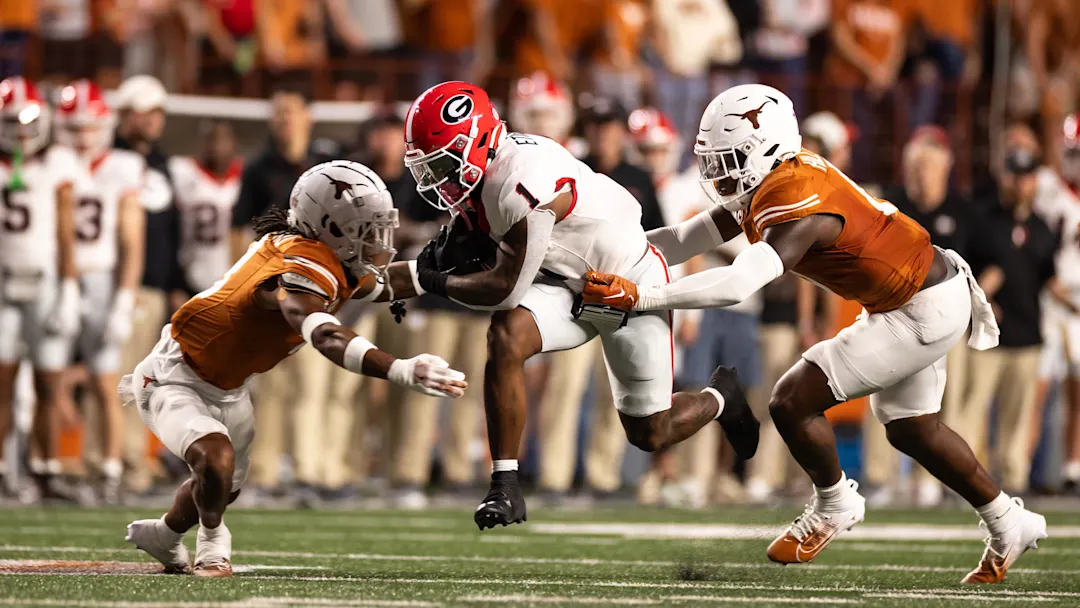
What a Strategic Win: Georgia’s Dominance Over Texas Longhorns Sparks Controversy
In a highly anticipated showdown, Georgia’s football team triumphed over the Texas Longhorns in the latest championship final, leaving fans and analysts buzzing with praise for Georgia’s calculated performance. But this win isn’t without its controversies. While Georgia’s victory showcased strategic brilliance, critics argue that the methods employed in securing this win were less about athletic prowess and more about exploiting rule interpretations and taking advantage of the Longhorns’ weaknesses in ways that blurred the lines of fair play.
Georgia’s Masterful Strategy or Excessive Gamesmanship?
On paper, Georgia dominated Texas in nearly every aspect of the game—yards gained, time of possession, and crucial defensive plays. Head coach Kirby Smart’s approach was undeniably calculated, but some are questioning whether his tactics went too far. Georgia’s heavy reliance on clock management in the second half, for instance, led to accusations of stalling rather than competing. While running the clock is a fundamental part of the game, Texas fans argue that Georgia’s relentless focus on it neutralized the excitement and turned the game into a technicality.
Moreover, Georgia’s defense played a brutal, punishing style that many Texas supporters labeled as unsportsmanlike. Throughout the game, Georgia’s defense delivered several hard hits that, while technically within the rules, rode the fine line between legal and excessive. While no major penalties were called, the aggressive style left some questioning whether officials were too lenient, allowing Georgia to physically wear down the Longhorns beyond the bounds of fair play.
The Impact of Officiating Decisions
Officiating in this game has also come under scrutiny. Texas Longhorns fans took to social media in droves, claiming that questionable calls—or lack thereof—ultimately tilted the game in Georgia’s favor. Several key moments, including a controversial pass interference no-call in the third quarter that would have given Texas a crucial first down, have sparked heated debate.
Critics argue that Georgia, with its status as a perennial powerhouse, benefited from favorable officiating that allowed them to escape penalties that could have shifted momentum. This raises uncomfortable questions about whether elite teams like Georgia are treated with a different standard when it comes to refereeing, thereby making the playing field anything but level.
Texas Longhorns: A Failure of Preparation or Victim of Circumstance?
While some might say Georgia simply outplayed Texas, others point to the Longhorns’ inability to adapt to the Bulldogs’ punishing tactics as a key factor in the loss. Texas quarterback Quinn Ewers struggled under relentless pressure, throwing multiple interceptions that arguably cost them the game. But were these errors a failure of preparation, or was Georgia’s pressure so overpowering that it forced uncharacteristic mistakes?
Critics of the Longhorns’ coaching staff suggest that Texas wasn’t adequately prepared to handle Georgia’s suffocating defense, especially given the Bulldogs’ track record of wearing down opponents in similar ways. Yet, many Longhorns loyalists believe that Georgia’s hyper-aggressive play style was allowed to flourish unchecked by referees, creating an unfair and unsafe environment that gave Georgia an undue advantage.
The Ethical Dilemma of Elite Football
Georgia’s victory over Texas may be a strategic masterclass, but it also raises larger questions about the ethics of modern football. Has the sport become so focused on winning that tactics now overshadow the spirit of competition? Georgia’s win might go down in history as a crowning achievement, but the controversy surrounding how they achieved it cannot be ignored.
In an era where player safety is increasingly emphasized, Georgia’s aggressive style of play—combined with questionable officiating—pushes the boundaries of what’s acceptable in the game. Moving forward, college football may need to re-examine its rules and enforcement to ensure that the sport maintains its integrity without sacrificing excitement or fairness.
Conclusion: Victory at a Price
Georgia’s win over the Texas Longhorns was undeniably a strategic triumph, but it came with significant controversy. Questions surrounding the aggressive nature of Georgia’s play, officiating decisions, and the ethics of modern football loom large. As the debate rages on, one thing is clear: while Georgia may have secured the trophy, the legacy of this game will be forever intertwined with controversy. Was this truly a win for football, or just for Georgia? The answer depends on who you ask.




